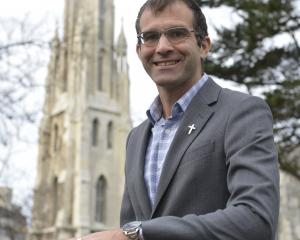Is there a place for religion in the science classroom, asks Joseph Ferguson.
The traditional perception there is no place for religion in the science classroom may be an obstacle for some students deeply engaging with science and developing a solid understanding of the fundamentals.
While science class isn't the place to teach creation theory, it is the place for discussions about science and religion to happen.
A decreasing number of students electing to pursue studies and careers in science has prompted a focus on developing ways to not only improve students' understandings of science, but to foster within students an appreciation of science.
Ever since religion and science have coexisted there has been the widespread perception they are opposites. No two things could possibly be more different than evolutionary biology and the origins of life according to Genesis.
According to this perception, religion asserts the existence of an all-powerful God who operates beyond the boundaries of the natural world. Science, in contrast, is concerned only with the natural world and dismisses the supernatural.
Following this logic, science rules out the existence of God. And in this way science and religion are seen to be in direct conflict.
What we see in Australia and worldwide is that adults in their everyday lives experience this conflict between science and religion.
Some students in schools share a similar experience, particularly when it comes to studying evolutionary biology.
My research (with colleague Barbara Kameniar) suggests the conflict between science and religion is an important part of the experience of learning evolutionary biology for some students who identify as religious.
In particular, this applies to those students who attend government schools in which the highly secular science curriculum clashes with the religious beliefs of the students.
These students seem to perceive evolutionary biology as a threat to their religious beliefs. As a consequence they do not fully engage with science.
They treat evolutionary biology as something that must simply be memorised for the purposes of fulfilling school exams.
This seems to lead to students disengaging with science. It is then unlikely that meaningful learning takes place. These circumstances discourage students from further studying science and pursuing careers in science.
There are alternatives to this traditional perception of the relationship between science and religion.
Most well known is perhaps Stephen Jay Gould's proposal that science and religion relate to different parts of life, what he calls non-overlapping magisteria. Under these conditions science and religion are not in conflict.
There is also the argument that while science asserts only natural things can be subjected to scientific investigation, this says nothing about the existence or non-existence of God.
What is required of both teachers and students is to critically consider the meaning of both science and religion and how they interact with each other.
They need to understand neither science nor religion is perfect and neither is right nor wrong. They are just different.
In order for this to occur, it is essential a place be made for religion in the science classroom.
It is not enough for the relationship between science and religion to be discussed in a designated class (e.g. a philosophy class) because it is within the science classroom that students experience conflict.
The conflict must be discussed as it is experienced.
This does not mean religion should be taught as science.
There is no place for creationism in the science classroom.
What needs to take place is that discussions about science and religion must become a part of the everyday science classroom. Students should feel comfortable discussing these issues.
If students can start to see science and religion can coexist without conflict, then they may experience less conflict when studying science.
This may lead to students further engaging with science and undertaking more meaningful learning.
Greater scientific literacy would lead to individuals better equipped to tackle the 21st-century world and encourage them to pursue studies and careers in science.
- theconversation.com/au
Joseph Ferguson is a doctoral candidate in science education at Deakin University, Melbourne.












